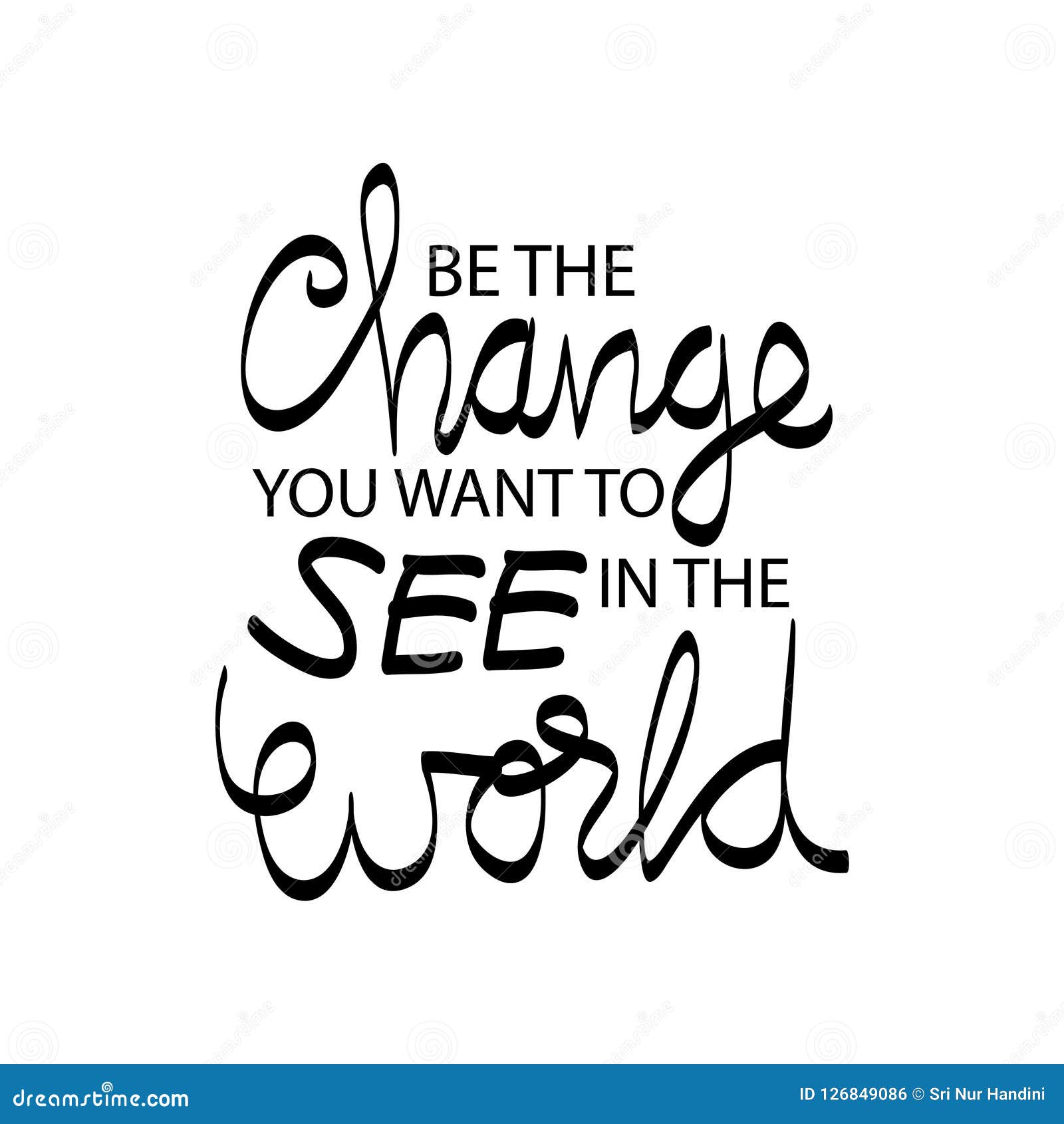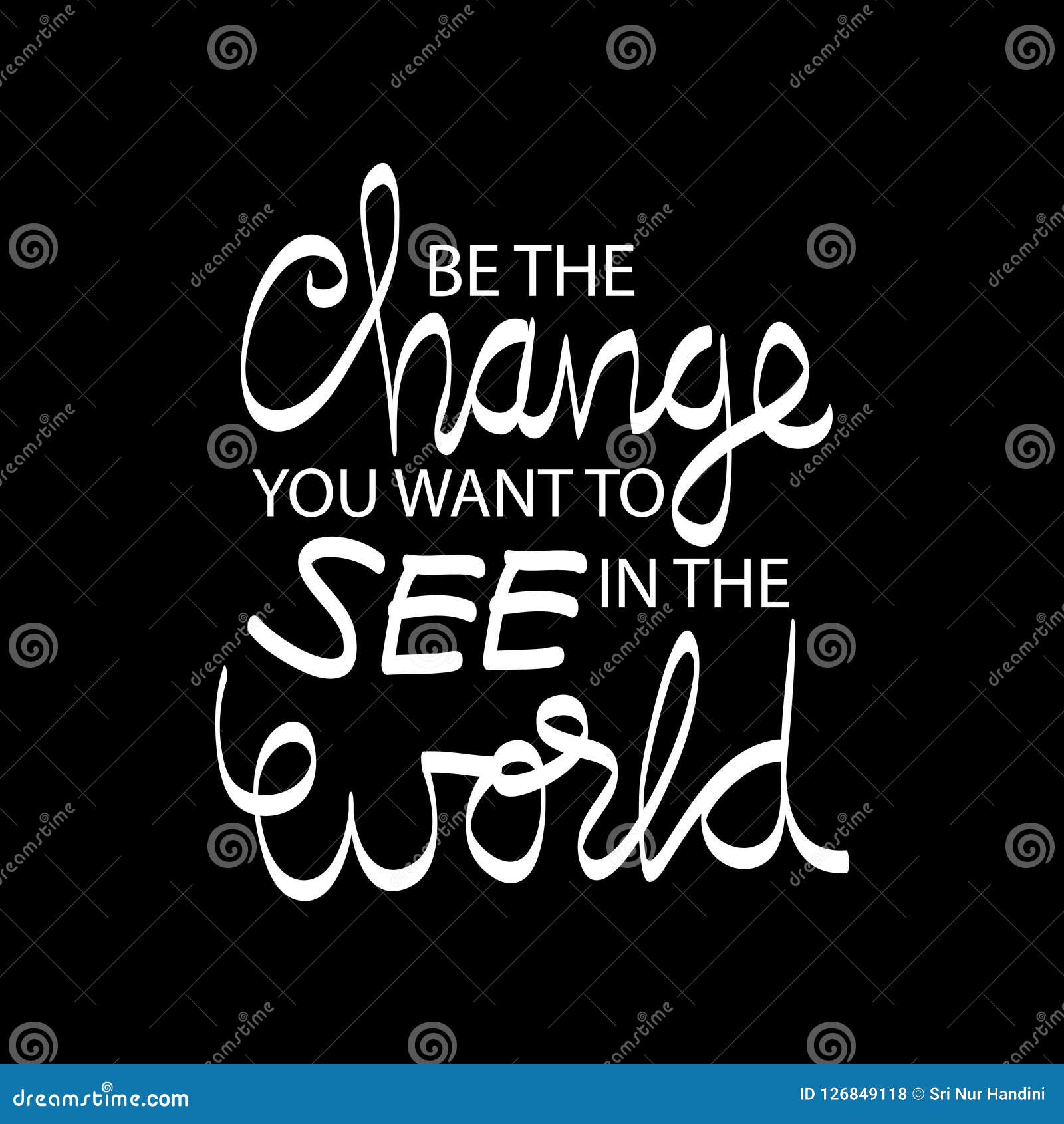“Be the change you want to see in the world” is more than just a phrase; it’s a call to action, a mantra for personal growth, and a roadmap for creating a better, more compassionate world. Coined by Mahatma Gandhi, this sentiment challenges each of us to embody the ideals we wish to see reflected in society. It’s not about waiting for others to take the lead but about taking responsibility for your actions and inspiring change through example.
At its core, this principle emphasizes self-awareness, accountability, and proactive efforts. Whether it’s through small, everyday acts of kindness or by spearheading larger initiatives, the idea is to start with yourself. By aligning your values and actions, you not only influence the people around you but also contribute to a ripple effect that can transform communities and, eventually, the world.
This article dives deep into the essence of “be the change you want to see in the world.” From practical strategies for personal change to the broader implications of this philosophy, we’ll explore actionable steps that you can take today. Whether you’re looking to improve your personal relationships, tackle social issues, or simply live a more fulfilling life, this guide is your starting point.
Read also:Luke Grimes Top Songs
Table of Contents
- Who Coined This Phrase?
- What Does It Mean to Be the Change?
- Why Is Personal Change Important?
- How to Start Small and Create Big Impact?
- Cultivating Self-Awareness
- Developing Positive Habits
- Building Meaningful Relationships
- How Can You Inspire Others Through Action?
- Embracing Responsibility
- The Role of Community in Change
- Overcoming Barriers to Change
- Fostering a Growth Mindset
- Can Children Learn to Be the Change?
- Lasting Impact and Global Change
- FAQs
- Conclusion
Who Coined This Phrase?
“Be the change you want to see in the world” is often attributed to Mahatma Gandhi, though there is some debate over whether he said these exact words. The phrase captures the essence of Gandhi’s philosophy, which emphasized non-violent resistance, personal accountability, and leading by example. His life was a testament to this principle, as he used his actions to inspire a nation and bring about significant social and political change.
Personal Details and Biography of Mahatma Gandhi
| Full Name | Mohandas Karamchand Gandhi |
|---|---|
| Date of Birth | October 2, 1869 |
| Place of Birth | Porbandar, Gujarat, India |
| Famous For | Non-violent resistance, Indian independence movement |
| Key Philosophy | Ahimsa (non-violence), Satyagraha (truth force) |
| Date of Death | January 30, 1948 |
Gandhi’s legacy continues to inspire individuals and movements worldwide. His teachings remind us that systemic change begins with personal transformation, making the phrase “be the change you want to see in the world” as relevant today as it was during his time.
What Does It Mean to Be the Change?
To “be the change you want to see in the world” is to live in alignment with your values and take proactive steps to create the world you envision. It means embodying the qualities, behaviors, and attitudes that you want to see in others or society at large. Rather than pointing fingers or waiting for external solutions, you take ownership of your actions and their impact.
Core Principles
- Self-Responsibility
- Empathy and Compassion
- Consistency in Actions
- Leading by Example
When you live by this principle, you inspire others to follow suit. Your actions serve as a beacon, showing that change is not only possible but also practical and achievable.
Why Is Personal Change Important?
Personal change is the foundation of societal transformation. Every major movement or revolution began with individuals who decided to act differently. When you change yourself, you create a ripple effect that influences your family, community, and, ultimately, the world.
Benefits of Personal Change
- Builds Integrity and Trust
- Encourages Growth and Learning
- Creates a Positive Impact on Relationships
- Empowers You to Contribute to Larger Causes
By focusing on personal change, you set an example that others can emulate, making the process of change more accessible and less intimidating for everyone involved.
Read also:Brandi Passante Meztelen%C3%BCl
How to Start Small and Create Big Impact?
Creating big change doesn’t have to start with grand gestures. Small, consistent actions can accumulate into significant impacts over time. Here’s how to begin:
1. Identify Your Core Values
Start by reflecting on what matters most to you. Is it kindness, honesty, or environmental sustainability? Knowing your values helps guide your actions.
2. Take Small Steps
Focus on manageable actions, such as:
- Smiling at strangers
- Volunteering for local causes
- Switching to reusable bags
3. Measure Your Impact
Keep track of your efforts and celebrate small wins. This not only boosts your morale but also motivates you to keep going.
Cultivating Self-Awareness
Self-awareness is the cornerstone of personal change. When you understand your thoughts, emotions, and behaviors, you’re better equipped to align them with your values.
How to Develop Self-Awareness?
- Practice mindfulness or meditation.
- Seek feedback from trusted friends or mentors.
- Engage in reflective journaling.
By cultivating self-awareness, you gain clarity about who you are and where you want to go, making it easier to embody the change you wish to see.
Developing Positive Habits
Habits shape your daily life and, by extension, your contribution to the world. Developing positive habits is a practical way to live by the principle of “be the change you want to see in the world.”
Steps to Build Positive Habits
- Set clear goals.
- Start small and be consistent.
- Reward yourself for progress.
Positive habits, such as regular exercise, gratitude practices, or volunteering, not only improve your life but also inspire others to adopt similar behaviors.
Building Meaningful Relationships
Strong, meaningful relationships are a catalyst for change. When you connect with others authentically, you create a support system that fosters mutual growth and impact.
Tips for Building Meaningful Relationships
- Listen actively and empathetically.
- Communicate openly and honestly.
- Support others in their journey of change.
By investing in relationships, you not only enrich your life but also create a network of individuals committed to making the world a better place.
How Can You Inspire Others Through Action?
Actions speak louder than words. When you live by the principle of “be the change you want to see in the world,” you naturally inspire others to follow suit. Here’s how:
1. Lead by Example
Whether it’s through acts of kindness, environmental stewardship, or advocacy, your actions demonstrate what’s possible.
2. Share Your Story
Be transparent about your journey, including your challenges and triumphs. Your story can motivate others to embark on their own path of change.
Remember, inspiration often comes from authenticity and vulnerability, not perfection.

